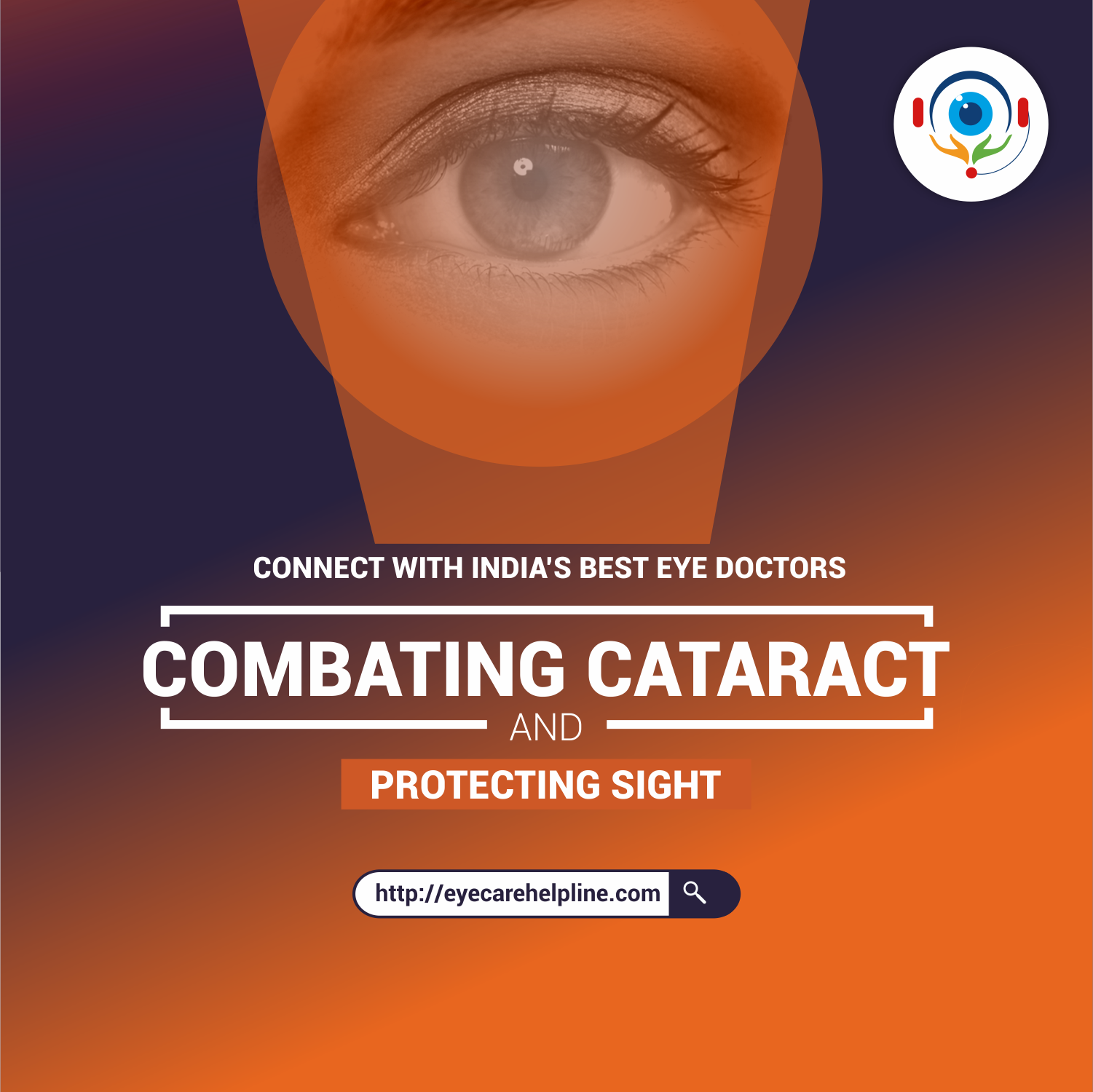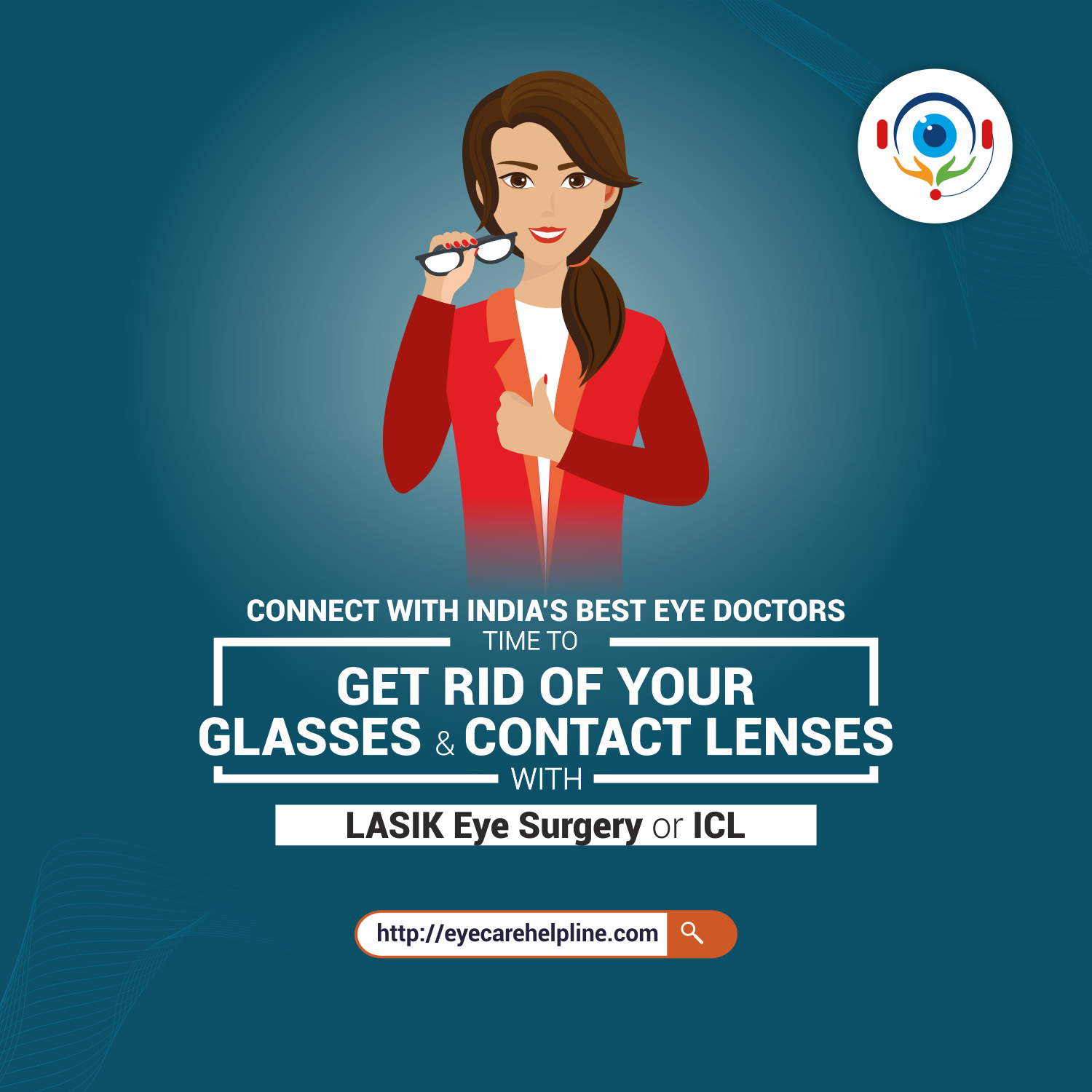- By: Dr. Parul Gupta
False Information can be Injurious to Health
We are surrounded with information all the time. And it is quite plausible that some of it can be untrue. We tend to choose believing misinformation over questioning its accuracy.
Information concerning health oftentimes gets entangled in this web of inaccuracy as well. This can be rather dangerous because it could lead to bigger health problems.
Myths about cataracts are among the many myths related to health that exists. Cataracts are considered to be one of main causes of blindness across the world. So can you imagine what blindly believing myths could do to someone who may have cataracts?
Below are some common myths about cataracts and facts that contradict these myths. But before we delve into these myths and facts, let's understand what exactly a cataract is.
What is a Cataract?
When the tissues of the eye break down and the proteins clump together, it clouds the lens in the eye and results in a cataract.
Various factors like aging, cortisone medication, diabetes, trauma and other diseases are among the causes of a cataract. Blurred vision and sensitivity to light and glare are its symptoms.
Following are 9 Myths and Facts about cataracts.
Myths and Facts about Cataracts
Myth 1: You can prevent or cure cataracts with medicines, a healthy diet, eye exercise or yoga.
Fact Check 1: Cataracts cannot be prevented. And, there is no medical cure for cataracts. If your cataract is progressive and is causing an eye problem, the only definitive treatment is surgery.
Myth 2: You do not have cataracts because your eyes don't hurt.
Fact Check 2: Usually, cataracts are not painful. However, it does result in glare, double and blurred vision, discolouration and a constant change in the prescription of your glasses.
Myth 3: You can delay a cataract surgery and only undergo one when the cataract ripens.
Fact Check 3: When you begin experiencing vision problems on a day-to-day basis, you must get yourself checked and if required, get a surgery done as early as possible.
Myth 4: Cataract surgery is quite painful and it takes long to recover from it.
Fact Check 4: A cataract surgery is not painful. Under topical anesthesia during surgery, the patient will just get the feel, but will not experience any pain.
Someone who has undergone it will recover in no more than an hour. The person will also be allowed to get back to their routine from the next day itself. Most people resume work a few days after the surgery. People resume work next day also.
Myth 5: A cataract surgery is quite long and extremely time consuming.
Fact Check 5: The surgery only takes about 10 minutes.
Myth 6: You do not need to wear glasses after a cataract surgery.
Fact Check 6: You will be given a pair of glasses post-surgery to protect your eyes and you will need to wear reading glasses.
Myth 7: All IOLs (Intraocular Lenses) are the same.
Fact Check 7: All IOLs are not the same. There are different kinds of IOLs - Monofocals, Multifocals, Accommodative Trifocals and Toric Lenses.
Having monofocal intraocular lenses will work well for distance vision. Having multifocal intraocular lenses can be of great advantage, as this type of lens gives you freedom from wearing glasses for near and distance vision. There is a criterion that needs to be fulfilled while selecting multifocal lenses. This decision will be made by your doctor after an examination.
Discuss your needs with your doctor. They will help you choose the IOL that will work best for your eyes.
Myth 8: Cataracts can come back again or regrow.
Fact Check 8: Cataracts cannot regrow. Sometimes, after a cataract surgery, the capsule behind the intraocular lens becomes cloudy. However, a quick laser procedure can fix that.
Myth 9: Only the elderly are likely to get affected by cataracts.
Fact Check 9: Children and young adults are also susceptible to getting affected by cataracts. It could be because of multiple factors like hereditary, an eye injury, disease or even smoking. An individual can begin showing signs of cataracts as early as 40.
Takeaway
Having the right information is extremely important when it comes to anything, especially something as serious as cataracts. Correct information will help you understand th



